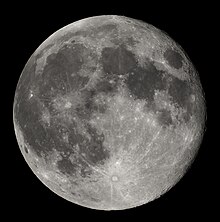Gram
Contenido keyboard_arrow_down
The gram (symbol: g) is the main unit of mass in the Cegesimal System of Units, and the unit of weight in the metric system. It was originally defined as the weight of one cubic centimeter of water at 3.98 °C, and is currently defined as one thousandth of a kilogram, the base unit of mass in the International System of Units.
- 1 g = 0.001 kg = 10−3kg
Equivalences
1 gram is equal to:
- 1000 mg
- 100 cg
- 10 dg
- 0.1 dag
- 0.01 hg
- 0.001 kg
Multiples and submultiples of the gram
| Submultiplos | Multiple | |||||
|---|---|---|---|---|---|---|
| Value | Symbol | Name | Value | Symbol | Name | |
| 10−1 g | dg | decigram | 101 g | dag | decagram | |
| 10−2 g | cg | centigram | 102 g | hg | hectogram | |
| 10−3 g | mg | milligram | 103 g | kg | kilogram | |
| 10−6 g | μg | microgram | 106 g | Mg | megagram | |
| 10−9 g | ng | nanogram | 109 g | Gg | gigagram | |
| 10−12 g | pg | picogram | 1012 g | Tg | teragram | |
| 10−15 g | fg | femtogram | 1015 g | Pg | petagram | |
| 10−18 g | ag | attogram | 1018 g | Eg | exagram | |
| 10−21 g | zg | zeptogram | 1021 g | Zg | zettagramo | |
| 10−24 g | yg | Yoctogram | 1024 g | Yg | Yottagramo | |
| 10−27 g | r | rontogram | 1027 g | Rg | ronnagram | |
| 10−30 g | qg | Quectogram | 1030 g | Qg | quettagramo | |
| The most common prefixes appear in bold. | ||||||
Multiples
- yottagramoYg), 1 Yg = 1 000 000 000 000 000 000 000 g = 1024g
- zettagramo (Zg), 1 Zg = 1 000 000 000 000 000 g = 1021g
- exagram (Eg), 1 Eg = 1 000 000 000 000 g = 1018g
- petagram (Pg), 1 Pg = 1 000 000 000 g = 1015g
- teragramTg), 1 Tg = 1 000 000 000 g = 1012g
- gigagram (Gg), 1 Gg = 1 000 000 g = 109g
- megagram or tonne (Mg or t), 1 Mg or 1 t = 1 000 g = 106g
- metric fifth (q), 1 q = 100 000 g = 105g
- kilogram (kilogram)kg), 1 kg = 1000 g = 103 g
- hectogram (hg), 1 hg = 100 g = 102 g
- decagram (dag), 1 dag = 10 g = 101g
Submultiples
- decigram (dg), 1 dg = 0.1 g (one tenth gram) = 10−1g
- centigram (cg), 1 cg = 0.01 g (an hundredth gram) = 10−2g
- milligram (mg), 1 mg = 0.001 g (a thousandth of gram) = 10−3g
- microgram (μg), 1 μg = 0,000 001 g (a millionth of gram) = 10−6g
- nanogram (ng), 1 ng = 0,000 000 001 g (a billionth of gram) = 10−9g
- picogrampg), 1 pg = 0,000 000 001 g (one billionth of gram) = 10−12g
- femtogram (fg), 1 fg = 0,000 000 000 001 g (a billionth of gram) = 10−15g
- attogram (ag), 1 ag = 0,000 000 000 000 001 g (a trillionth of gram) = 10−18g
- zeptogram (zg), 1 zg = 0,000 000 000 000 000 000 001 g (a thousandth of gram) = 10−21g
- yoctogram (yg), 1 yg = 0,000 000 000 000 000 000 000 001 g (quabillionthium gram) = 10−24g
Contenido relacionado
Molecule
Particle accelerator
Fire
Más resultados...
